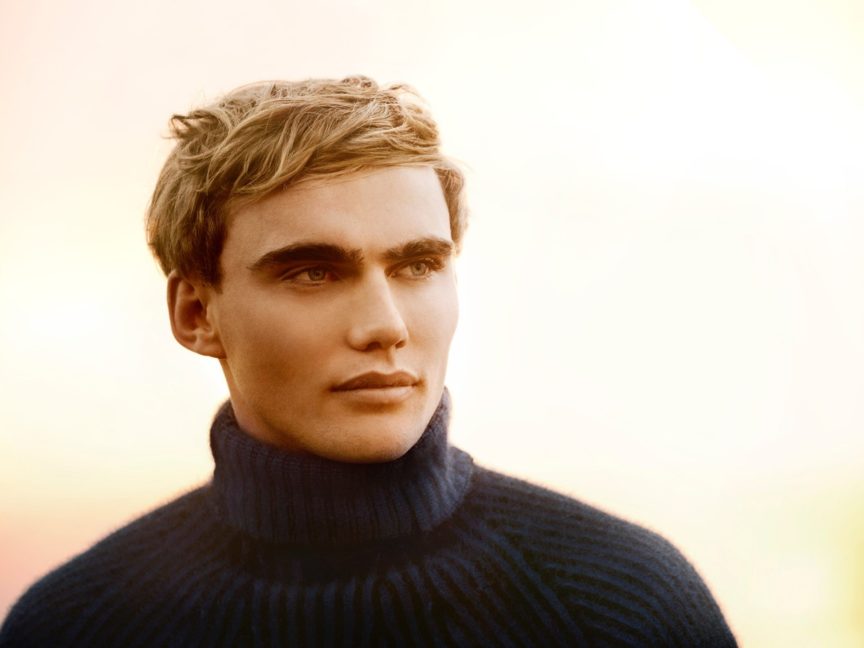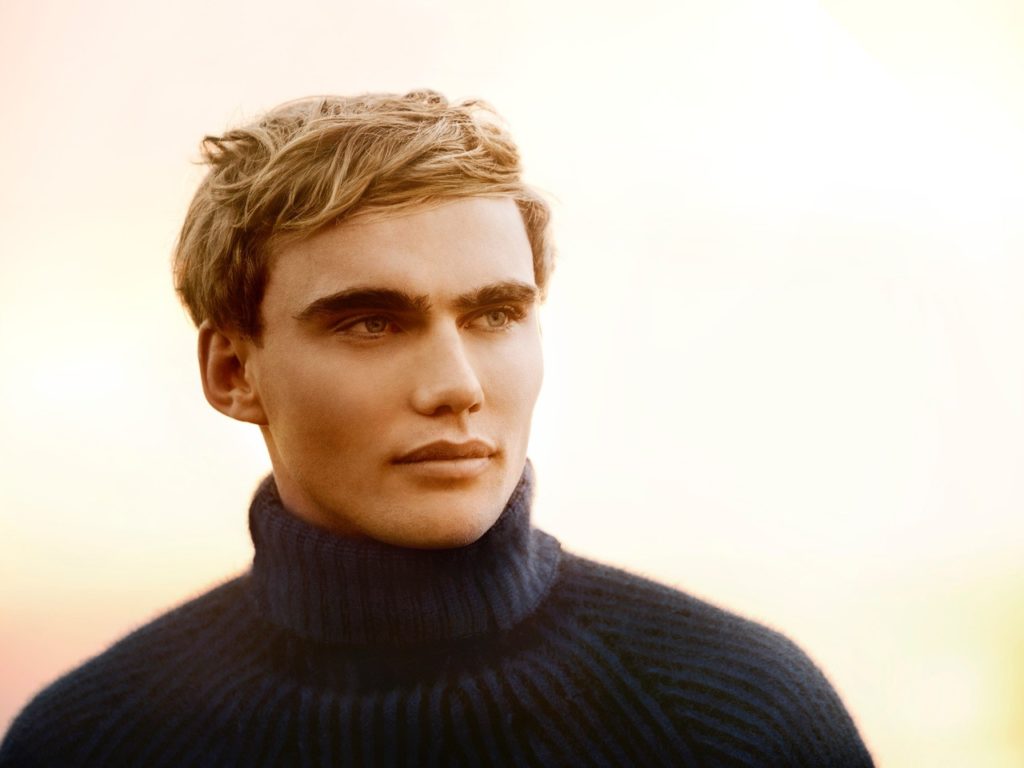Attitudes about what we want from our products and brands are changing, with the influence of the environmental challenges we are facing all around the world. With those changes in consumption come changes in our supply, and the fashion industry is following suit. Luxury fashion brands are changing and improving their philosophies and practices to make more sustainable products. The changes towards more sustainable luxury brands trickles down to fast fashion brands with brands such as H&M and ASOS adding conscious consumer ranges to their portfolio.
We have to consider what sustainability means to us as consumers and there are lots of different categories to consider. Cruelty-free, organic, fair trade, handmade, locally sourced, locally made, recycled, biodegradable, reusable, upcycled to name a few qualities, can all contribute to making a brand sustainable. Brands have to look past their own practices and also consider the elements of their design that they source from other companies, ensuring their chain of supply have philosophies that fit their own. There are literally thousands of suppliers improving their practices to meet these demands, including New Zealand’s Woolyarns, with their Perino by Woolyarns collection.
The luxury fashion industry is embracing sustainability
Sustainability has become one of the primary issues in our society today. It measures environmental, social and financial viability. Any amount of human consumption affects our environment, so we need to really consider the elements that we can make more sustainable, to lessen the impact on our Earth and allow for future generations of use. So what is sustainable fashion? In a report from Fashion Theory, Volume 16, sustainability is described as ‘being an activity that can be continued indefinitely without causing harm; doing unto others as you would have them do unto you; and meeting a current generation’s needs without compromising those of future generations’. Therefore sustainable fashion is low impact on the environment, has a social conscience and still meets the needs of the consumer, which includes a want for transparency in the product’s manufacture.
Celebrity endorsement is a major indicator of what trends will be picked up all the way down the line. As consumers of the luxury fashion industry, celebrities are very influential when it comes to what designers will create. Actress and UN Goodwill Ambassador Emma Watson, is a proud supporter of fairtrade and ethical practices in the fashion industry and includes information about the processes and makers behind her outfits on instagram. Supermodel Lily Cole has started her own ethical knitwear company The North Circular, with traceable production and handknitted garments. Musician Pharrell Williams has also used his influence to promote sustainable fashion, with his brand G-Star RAW that re-uses plastic waste found in the ocean to create denim and other fabrics for luxury streetwear. Many other celebrities are doing similar work, influencing the move towards more sustainable practices in the fashion industry.
There are many ways in which a brand can increase their sustainability. Whether it be finding suppliers that pay fair wages to their staff, using less chemicals and water, paying fair amounts for their design components, creating products designed to last and when they are at the end of their life, designed to biodegrade with minimal impact. Sustainable companies flow these philosophies into every element of their business from the cleaning products they use, to switching to eco bulbs, donating to relevant charities and causes and training their employees with a focus on the importance of these sustainable practices.
Patagonia have an incredible environmental and social conscience, that is building all the time. Although more alpine wear than luxury fashion, their sustainability model is definitely worth mentioning, as it is honest, far reaching and ever improving. Realising their store staff were getting headaches from the chemicals on their cotton garments, Patagonia went organic in 1996. They resolve issues like this as they come up, where they can. They are leading by example, proving it is possible to be successful while minimising and tracing the positive and negative effects on the environment and communities. Patagonia is the first to admit that they aren’t perfect – no company or industry creating products that people consume is, but we can all take steps to evolve and improve.
The Kering Group is a company of note leading changes in the sustainability of luxury fashion brands. They have invested in dozens of big names in the luxury fashion industry including Gucci, Alexander McQueen, Stella McCartney, Balenciaga, Brioni, Christopher Kane and Bottega Veneta. These brands, under the Kering group’s commitments, are all managing and improving their processes to be more sustainable. For Kering, being sustainable improves the quality of their products, and empowers their brands to differentiate, be innovative as well as taking social and environmental responsibility. Their influence is phenomenal, and we can see fast fashion brands as always, following these luxury powerhouses.
The Fashion Supply Chain
The term fast fashion describes brands that are copying luxury fashion catwalk trends, and producing them quickly with cheaper materials at huge volumes, so they can sell similar designs for a fraction of the price. The gap between a luxury fashion show and the high street fast fashion stores having knock-off designs on the racks can be as little as three weeks. This allows the common consumer cheap fashion they can have instantaneously. Fast fashion retailers feed consumer impulse to want the latest thing, by producing new styles every week or so. This leads to addictive behaviour in consumers, as even though they want to make sustainable choices, the possibility of instant gratification throws those ideals straight out the window in stores like Topshop and Zara upon finding a bargain.
Other brands including H&M and ASOS, who are very much considered to be fast fashion brands, are answering to consumers wanting sustainable products. H&M’s Concious Collection has a focus on their cotton use – preferring organic cotton and recycled cotton, they also look at garment collection, work conditions, fair wages and water consumption. H&M’s operation is huge so it is going to take a lot of time and work to really be sustainable, but it is evident they are making moves to improve their sustainability. Online fashion brand ASOS similarly is looking at their corporate responsibility, creating a section on their website ‘Eco Edit’ where browsers can find sustainable fashion and beauty products and increased transparency of their supply chain and practices.
Luxury Perino Yarn
As consumers we have to resist the urge to spend on cheap, low quality garments, that we know can’t possibly be produced ethically for that price. If instead we consider our choices and research our brands, we can not only get longer lasting quality garments, but support a movement that supports the environment, the makers and their communities. We need to look into the materials our clothes are made out of, as there are new innovative fabrics being produced that have sustainable qualities.
A unique example of this is Perino by Woolyarns, an innovative collection of yarns blending brushtail possum fibre with cashmere, silk and fine merino. Produced by Woolyarns, a small family owned mill in New Zealand, Perino yarns have an interesting sustainability story. The brushtail possum is a devastating introduced pest, destroying the native forests they run wild in and contributing to the decline of endangered species of flora and fauna. The possums must be controlled by NZ government’s Department of Conservation to protect the wildlife and forging strong relationships with possum hunters is an efficient way to reduce the numbers. The fibre from the brushtail possum has incredible properties, contributing to fabric that has warmth without weight and a soft halo-like burst of fibre. The fabric produced with Perino yarn is high quality and long lasting, and when it’s at the end of it’s wearable life the natural product biodegrades quickly. Perino by Woolyarns are luxury artisan yarns that give fashion designers another choice when sourcing materials.
Sustainable luxury trickles down
Luxury fashion designers have the power to revolutionise the fashion market. Their influence is apparent all the way down the line from their suppliers and manufacturers, to the fast-fashion companies mimicking their methods. Sustainable luxury fashion is providing for the changing attitudes in their consumers including significant celebrities who reinforce those sustainable practices with their endorsement and ideas. We as consumers also hold power, as the more we choose to buy sustainable fashion, the more designers will provide sustainable fashion collections. We all need to join in on the discussion, with our friends, family and co-workers. Instead of high quantity, fast fashion, let’s choose sustainable quality.


